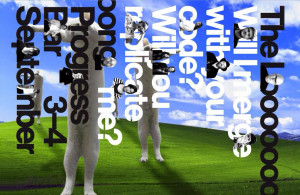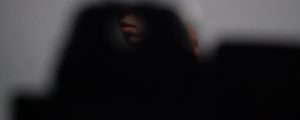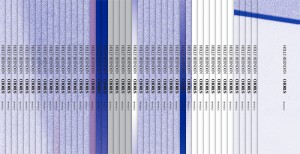Looks like San Francisco-based ‘lap-top’ producer Holly Herndon has been fully absorbed by her processor for her new single, ‘Chorus’, out on RVNG Intl today. As the artist and PhD candidate behind creative vocal processing and embodied computer music, she’s taken the nudge to more dance-friendly production over her heady, though equally engrossing, sound experiment Movement released on the same label in 2012.
The b-side of the record, ‘Solo Voice’ is a more abstracted affair, in keeping with the live shows that mix conceptual fragments with gripping physical motion. Here’s a video by Akihiko Taniguchi, produced by creative partner Mat Dryhurst and inspired by Herndon’s own mundane online habits.
See the RVNG website for more info. **




